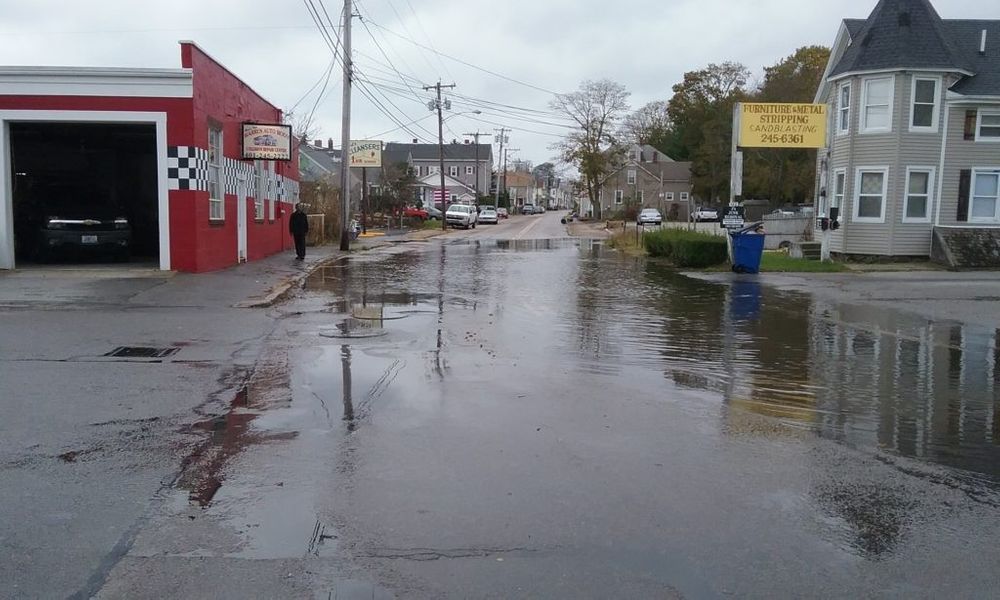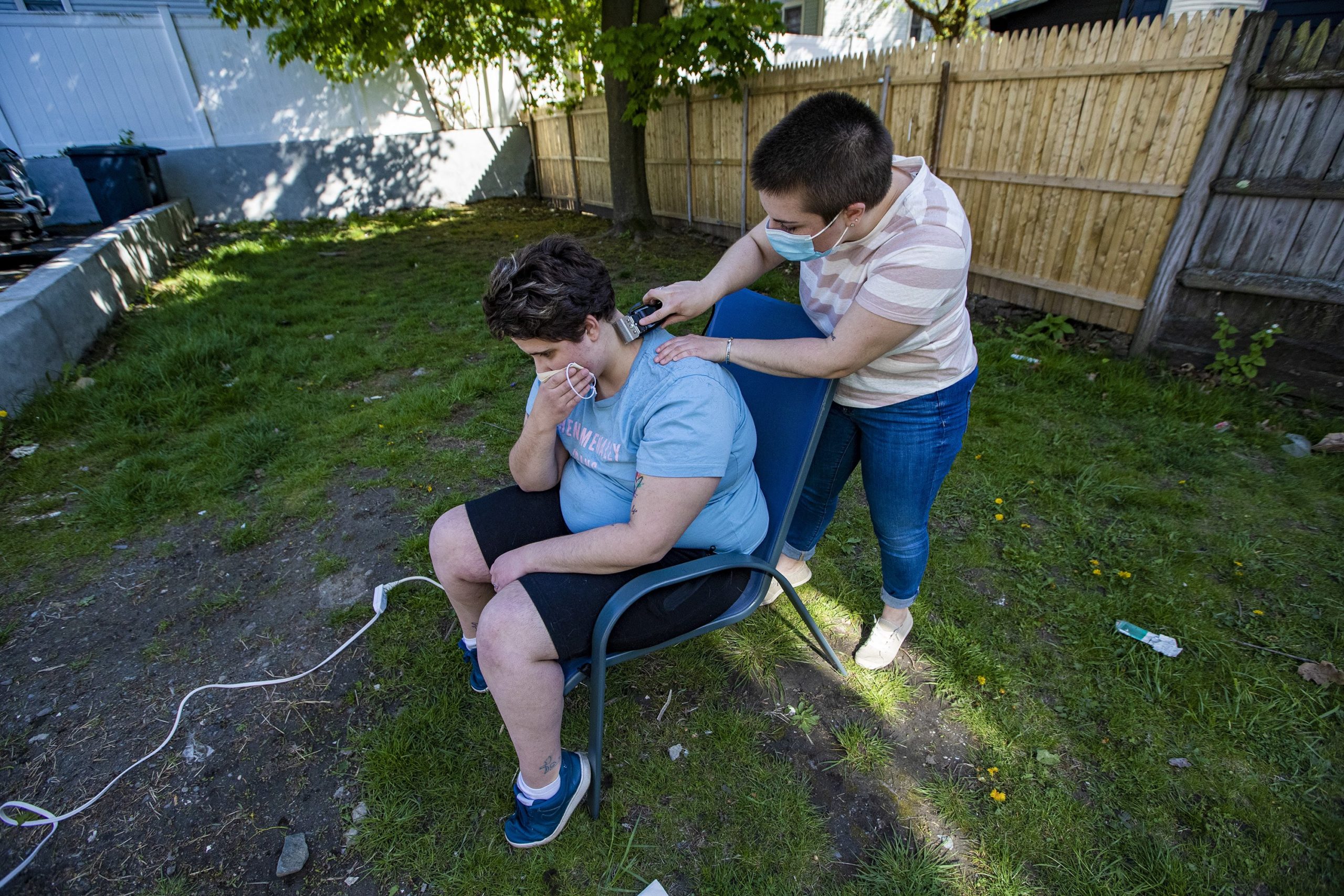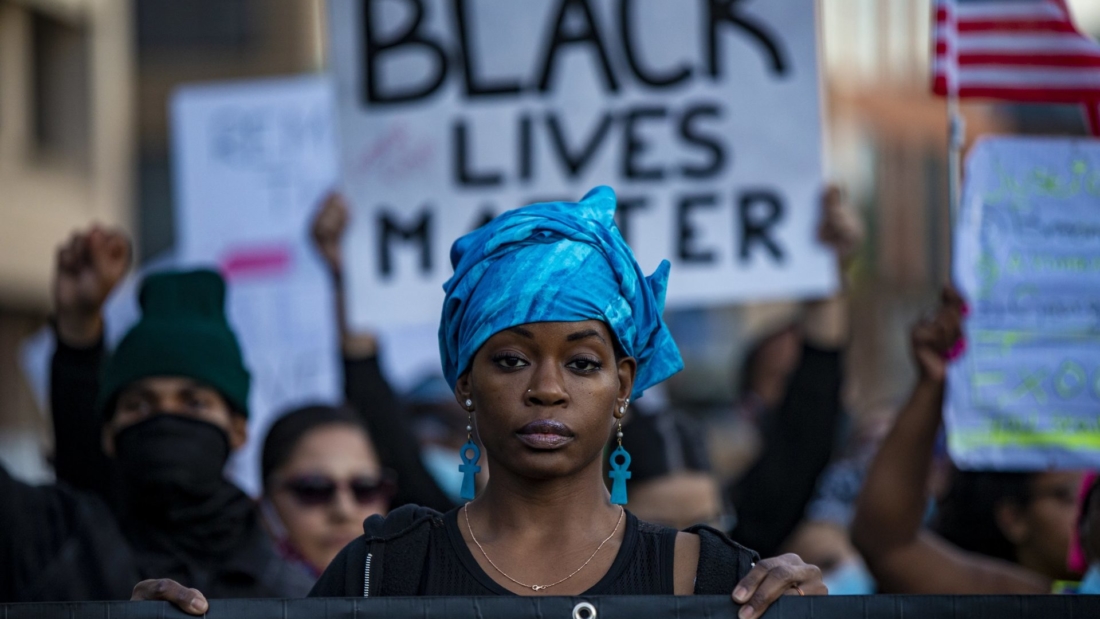Episode 201: New England Protesters Condemn Systemic Racism; Maverick Town Leaders Hatch Plan To Sidestep Sea Level Rise
This week on NEXT, as protests continue over police brutality and the death of George Floyd, we hear from an educator on how to dismantle racism in public schools. And a Rhode Island community threatened by sea level rise is taking action to save their town. Plus, a project that gets hair clippers to transgender people brings needed comfort during the pandemic.
Protests Against Police Brutality And Racism In America Continue
For more than a week, people have been protesting police brutality, the death of George Floyd and racism in America. Across New England, from Manchester, New Hampshire to Hartford, Connecticut to Boston, demonstrators have rallied outside police departments, on highways and through downtowns.
“We have a voice, and if we don’t use it, nothing’s gonna happen,” Kamil Johnson of New London, Conn. told Connecticut Public Radio. “Having all these people use their voice, it’s going to be heard one day.”
Amidst these protests, Alicia Thomas, a special education teacher in Springfield, Massachusetts, posted on Facebook about the role of teachers in dismantling racism. She says she’d like to see school administrators support teachers of color more.
“As a black teacher, I have not felt safe to advocate for my students in a way that I see my white counterparts celebrated in doing so,” Thomas told NEXT.
Thomas previously taught ethnic studies at Holyoke High School in Massachusetts and felt that her contract was not renewed after she refused to enforce a policy prohibiting students from wearing du-rags. In a statement, the school’s executive principal said he could not discuss the reason for not renewing Thomas’ contract since it was a personnel matter, but he said he did get rid of the du-rag policy after speaking with students, faculty, staff and community members.
Town Leaders Pitch Novel Buyout Plan For Flood-prone Warren

A section of Market Street in Warren flooded by an especially high tide. Warren Planner Bob Rulli and Manager Kate Michaud often use this photo to highlight the town’s vulnerability to sea level rise and storm surge. (Courtesy Bob Rulli)
By the end of this century, sea level rise is projected to split the Rhode Island town of Warren into three pieces; part of the town might even become an island. But a pair of dynamic town leaders is determined not to wait for a hurricane to force the town’s hand.
“I don’t want something bad to happen in order for us to address the issue of flood vulnerability,” said Town Manager Kate Michaud.
Instead, Sofia Rudin of The Public’s Radio reports, they’re considering a controversial proposal: redeveloping a street on higher ground and offering voluntary buyouts for at-risk property owners.
Trans Clippers Project Gives People A Chance To Reclaim Their Gender Expression During The Pandemic

Neighbor Lauren Keisling trims the hair of Ryley Copans in their backyard with a brand new pair of clippers. (Jesse Costa/WBUR)
There’s an effort underway to get hair clippers to transgender people to help them maintain their gender identity at a time when clippers – and easy access to professional haircuts – are scarce. WBUR’s Cristela Guerra reports, The Trans Clippers Project delivered brand new hair clippers to trans folks in Massachusetts last month, along with information about food pantries and online support groups, and a handwritten note of encouragement. The project is an effort to bring comfort during an uncomfortable time.
“For a lot of trans folks, we experience dysphoria, which for folks who don’t know is a word that means a very strong, deep discomfort with either parts of our body, and/or parts of our appearance that align with the sex that we were assigned at birth,” said Ryley Copans, who was one of the recipients of the clippers.
Emotional Calls And Weekend Worries: Working As A Coronavirus Contact Tracer

(Images by Getty Images, illustration by Emily Judem/WGBH News)
Contact tracing programs have sprung up around New England, as a way to combat the spread of coronavirus. Rhode Island has rolled out an app called “Crush COVID RI.” It has general COVID-19 information, but it can also track your whereabouts and who you come in contact with – if you allow it to.
Dallas Paiva is a contract tracer in Massachusetts. She normally works for Blue Cross Blue Shield fielding member questions, but she was temporarily redeployed to become part of Massachusetts’ new army of more than 1,500 contact tracers. WGBH Radio’s Gabriella Emanuel talked to Paiva about what the job is like.
Also On This Week’s Show:
- Rhode Island Vet Tells Story Of Son’s First Experience Of Racial Profiling (The Public’s Radio)
- Martha’s Vineyard Braces And Adapts In The Summer Of COVID-19 (WCAI)
- ‘A Grieving Process’: High School Seniors On Graduating At A Distance (VPR)
- The Timeless (And Mostly Pandemic-proof) Drive-in Theater (The Public’s Radio)
About NEXT
NEXT is produced at Connecticut Public Radio
Host/Producer: Morgan Springer
Executive Editor: Vanessa de la Torre
Senior Director: Catie Talarski
Contributors to this episode: Nadine Sebai, Gabrielle Emanuel, Howard Weiss-Tisman, Sofia Rudin, Eve Zuckoff, Cristela Guerra and Alex Nunes.
Guests: Alicia Thomas and Jennifer Francis.
Music: Todd Merrell, “New England” by Goodnight Blue Moon, “Dreamin’” by The Wolff Sisters, “Fresh Like a Dollar” by West End Blend and “Home is a Cage” by Francesca Blanchard.
New to NEXT? You can find every episode or one you missed within our archives.
We want your feedback! Send critiques, suggestions, questions and ideas to next@ctpublic.org. Help us spread the word! If you like what you hear, rate and review us on iTunes.


